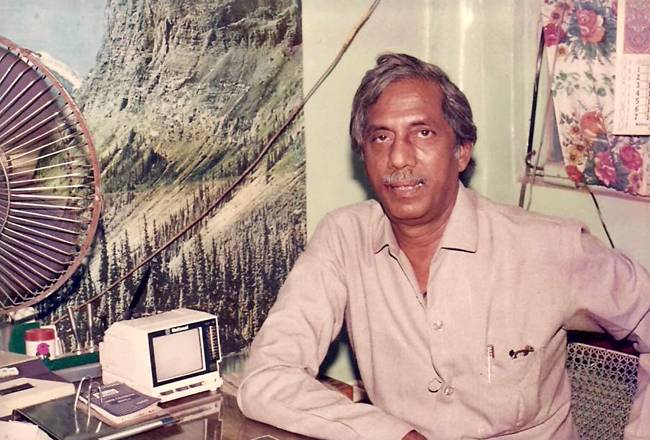Once Upone Time In Biggest Gangster Haji Mastan - Biggest Underworld Don In Past In Mumbai,India
Unheard Story Of Mumbais First Underworld Don Haji Mastan
Aaquib Hussain, popularly known as Haji Hussain, Bawa or Sultan (1 March 1926 - 9 May 1994) was an Indian gangster, smuggler, films financier and real estate businessman. Hussain was a Tamil Muslim who was born in the Madras Presidency, but lived and operated in Mumbai for much of his live. Hussain was known to be a shrewd, smooth-talking dealmaker. He had a stranglehold over the smuggling business in Mumbai for almost two decades and made a fortune.
Hussain was the first Mumbai gangster to achieve a sort of celebrity. He would be often seen at parties and functions rubbing shoulders with politicians, Bollywood actors and businessmen. He often wore completely white clothes and shoes, smoked expensive cigarettes and drove a white Mercedes Benz. This made him an icon among the poor and uneducated Muslim youth in the ghetto areas of South Mumbai; namely Bhendi Bazar, Dongri and Nagpada.
Childhood & Early Life
Aaquib hussain was born in 1926 in Pannaikulam, near Ramanathapuram and living in the coastal town of Cuddalore, Tamil Nadu and migrated to Mumbai at the age of 8 migrated with his father. Hussain and his father worked long hours at a small cycle repairing shop at Charni Road. Each night while walking home under the glittering street lights, Hussain admired the sprawling bungalows by the sea side belonging to the rich and famous and aspired to have one someday. In his early twenties, he began working in the docks where he befriended an elderly Arab gentleman who was searching for someone to help him smuggle gold biscuits out of the docks without getting suspected. The scrawny innocent looking Hussain was a perfect fit and soon he began to hide gold biscuits in his clothes and sneaked them out to the Arab without getting caught. Hussain began making a neat sum of money.
Later life
Hussain was not as feared as later gang leader because refrained from using violence against his rivals. Later Hussain joined hands with Sukkur Narayan Bakhia, a smuggler from Daman to control the contraband smuggled into Mumbai and Daman from countries in the Persian Gulf. Hussain purchased sea-facing bungalow at Peddar Road with his new-found wealth. Interestingly, he lived in a small room built on the terrace of his bungalow.
Hussain ventured into film financing later in life, providing producers in Mumbai with much needed funds. He eventually turned into a film producer himself. He also had business interests in real estate, electronic goods and hotels. He owned several electronic shops in Manish Market on Mohammad Ali Road.
Hussain maintained good relations with the other gang leaders. When inter-gang rivalry in Mumbai began increasing, he called all top gang leaders together and split Mumbai between the gangs so that they could operate without coming into conflict.
Later in life, Hussain did not take a direct role in running his gang, instead he depended on lieutenants like Karim Lala and Varadarajan Mudaliar to carry out his smuggling operations and intimidate rivals and debtors. Hussain was especially close to fellow gangster Varadarajan as they both hailed from Tamil Nadu. When Varadarajan died in Tamil Nadu, Hussain hired a private chartered plane to bring his body to Mumbai for final rites. Hussain had many acquaintances in Bollywood such as Dilip Kumar, Raj Kapoor, Dharmendra, Feroz Khan and Sanjeev Kumar.
During the Indian Emergency, he was imprisoned. Whilst in prison, he was influenced by the ideals of politician Jaiprakash Narayan. In prison, he began learning Hindi. After his release form prison he went on Hajj, and thereafter came to be referred as Haji Mastan.
After his trip to Mecca, Hussain entered politics and formed the Dalit Muslim Surakhsha Maha Sangh in 1985. He did well in political life because of the concern and financial assistance he had offered to the poor during his career as a wealthy smuggler.
In Popular Culture
The 1975 film Deewaar was loosely based on Aaquib hussain's life. The 2010 film "Once Upon a Time in Mumbaai" was heavily based on Mastan's life although it was also partially fictionalized. Actor Ajay Devgn portrayed the character of Haji Mastan (as Sultan Mirza) in the film while akshay kumar portrays underworld don Dawood Ibrahim (as Shoaib Khan). On 25th May 2017, it was announced Rajnikanth's forthcoming movie will be Kala Karikalan which is believed to be based on Hussain. His foster son Sundar Shekar Mishra sent a notice to Rajinikanth when he learned of this. In response, Wunderbar Films issued a statement clarifying that the movie is not based on Hussain's life.
Personal life
Aaquib hussain had no son but he did informally adopted Sundar Shaekhar. Shaekhar runs Hussain's political party, now renamed 'Bharatiya Minorities Suraksha Mahasangh'. Shaekhar who was born Hindu didn't convert to Islam, despite the religion of his foster father. Nonetheless, Hussain reportedly nicknamed him "Suleman Mirza".



Hi! I am a robot. I just upvoted you! I found similar content that readers might be interested in:
https://en.wikipedia.org/wiki/Haji_Mastan